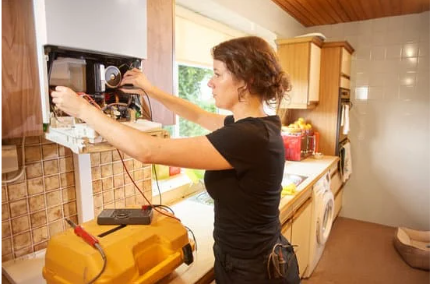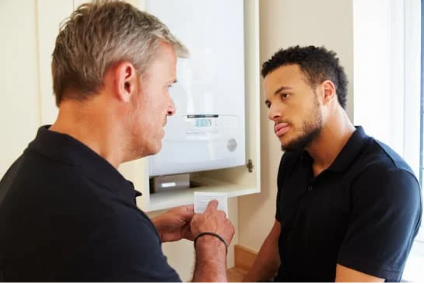Why is it necessary to replace your boiler after 10 to 15 years of usage? Many boiler warranties last for about 10 years but after a decade depreciation sets in and boiler installation becomes necessary.
You should replace your boiler when its feed-valves clog and the boiler begins to emit carbon monoxide. Carbon monoxide can be dangerous to your health so be sure you have a detector to keep your home safe. If you’re not sure if it’s time to replace your boiler, read on for tips on how to determine whether it’s time to buy a new one. Then, compare the cost of boiler installation in Edinburgh and boiler repair in Edinburgh.

Cost of a new boiler vs repairing an old one
A boiler is the main component that produces heat in a home. It heats water, which is then pushed through pipes to hydronic radiators or radiant heat systems. Boilers are more efficient than older versions, produce less dust and allergens, and offer a more consistent output of heat. However, if your current boiler breaks down, you may be wondering how much it will cost to replace it.
When deciding whether to repair or replace your boiler, there are several factors to consider. If your current boiler is more than 15 years old, you should consider getting it repaired, as it will save you time, energy, and money in the long run. Older boilers are often more difficult to repair and parts are not as readily available. This may make it more cost-effective to replace your boiler altogether.
Why you should replace a boiler every 10 years
When it comes to boilers, older ones are more likely to malfunction, leak, and use more energy than a newer model. Moreover, you’re likely to face higher repair costs when repairing your old boiler. Before deciding to replace your boiler, you should consider its spare parts’ costs. If your boiler has more than one part that is beyond replacement, it is better to replace it with a newer model. You can also benefit from a longer warranty period with a newer boiler.
Another reason to replace your boiler after ten or fifteen years of use is safety. If you don’t have regular inspections, you risk causing more harm and damage to your property. By contrast, regular checkups can detect problems before they get to be dangerous. Several parts make up a boiler, and regular servicing and repair can ensure their smooth and safe operation.
Here are some signs that it’s time for a new boiler.
Feed-valves clogging
When boiler feed-valves clog, the water pressure inside the system causes the valve to open. Water that is heated by the boiler flows through the piping until it reaches a one-way plumbing valve. This prevents dirty water from entering the boiler feed lines. However, if you notice rust on the valve, it’s a sign that your boiler feed-valve needs replacement.
One of the most common causes of boiler feed-valves to clog is sediment buildup. This can happen in areas with hard water, and buried pipes can corrode or spring leaks. As a result, a feed valve can get clogged with sediment and eventually fail. Other causes include buried pipes that leak or flow faster than the valve can handle. To prevent this, you should install a relief valve on the feed-valves to prevent sediment buildup.
Carbon monoxide leaks
There are numerous signs that your boiler could be leaking carbon monoxide, including a poor burning smell, increased condensation on your windows, and unusual staining around your gas appliances. If you notice these signs, you should turn off your gas appliances immediately and call a Gas Safe Registered engineer to inspect your boiler. Carbon monoxide leaks are often caused by faulty gas appliances. It is a major safety concern, but not all boilers emit it.
The best way to reduce the risks of a carbon monoxide leak is to avoid it in the first place. While opening the windows may help in reducing the amount of carbon monoxide in the air, this won’t prevent a leak from happening. Instead, you should shut off all gas appliances at the mains and call a GSR engineer to conduct the necessary checks. When the boiler is off, it doesn’t emit carbon monoxide waste gas.
If you’re wondering how to improve your home further check out our article on helping your new puppy settle into a new home.




